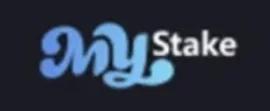Best Non GamStop Casinos UK | Casinos Not on GamStop 2025
Fact-checking
Every non GamStop casino we list is independently reviewed and verified. Our team checks welcome bonuses, slot games, payment methods, and terms directly with each casino not on GamStop.
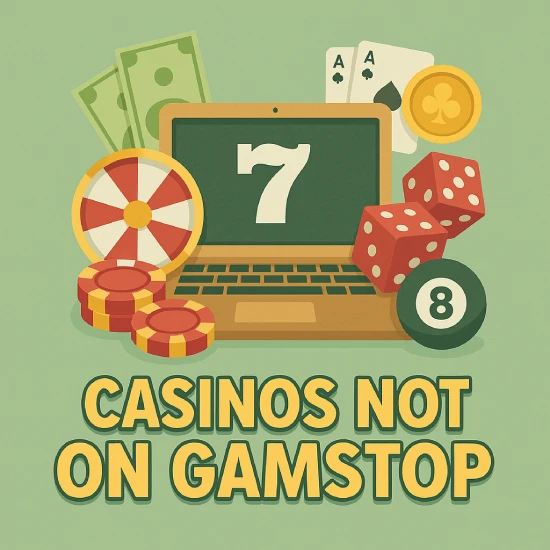
Non GamStop casinos have become a top choice for UK players in 2025, offering more freedom and flexibility than traditional UKGC-regulated sites. These platforms provide unrestricted access to slots, table games, and sports betting, all without the limitations imposed by the UK’s self-exclusion scheme, GamStop. Unlike domestic operators, casinos not on GamStop give players the ability to explore a wider variety of games, enjoy faster sign-ups, and use flexible payment options, making them an attractive alternative for those seeking a broader gambling experience.
Many players feel “gamstopped” when they’ve registered with GamStop and later realise they want to play again. Whether it’s a temporary decision you now regret, or a system you didn’t fully understand, non GamStop casinos provide a reliable alternative for regaining control over your gambling — without jumping through hoops.
These offshore casinos operate legally under international licenses like Curaçao or Anjouan, allowing UK users to play real-money slots, roulette, poker, and more — even if they’re registered with GamStop. From non GamStop slots with high RTPs to casinos not on GamStop offering crypto payments and no ID verification, the market is full of flexible options tailored to your preferences.
But with this freedom comes responsibility. Not every non GamStop casino is trustworthy, and not every site deserves your deposit. That’s why this guide goes beyond surface-level advice. We’ve thoroughly tested top-rated platforms, reviewed their licensing, security, and slot providers, and compiled everything you need to make informed decisions.
Whether you're new to the idea of playing slots no GamStop or you're simply looking for the best value in 2025, this in-depth guide will walk you through:
- What non GamStop casinos are (and how they work)
- The most popular slot games available
- How to find safe and fast-paying platforms
- Who should avoid them — and who they're perfect for
Let’s dive in and explore the non GamStop casino scene in 2025 — where flexibility, freedom, and fun are just a few clicks away.
The List Of Best Non Gamstop Casinos in The UK 2025
-
2

Goldenbet
100% Sports Bonus + Casino Bonus
non-gamstop
- Fast Registration
- Wide Sportsbook
-
3

Freshbet
100% up to £500 (Sports)
non-gamstop
- Not on GamStop
- Wide Sportsbook
-
5
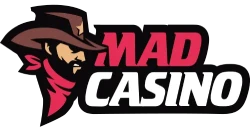
Mad Casino
777% up to €7,500
non-gamstop
- 120% Welcome Bonus
- 40+ sports & esports
-
6

1Red
200% up to 7760£ + 100
non-gamstop
- Strong sportsbook
- Big welcome bonuses
-
7

Pitbet
225% up to 11000€
non-gamstop
- No GamStop restrictions
- No GamStop restrictions
-
8

LuckyWands Casino
200% up to £1500
non-gamstop
- Multiple welcome bonuses
- Weekly reloads for sports
Looking for the top-rated non-GamStop casinos in 2025? We’ve handpicked ten platforms that consistently deliver across all categories — from welcome bonuses and fast withdrawals to game variety and user experience. While many offshore and European casinos that aren’t on GamStop compete for attention, these ten operators truly stand out for UK players seeking reliable non-GamStop alternatives.
Whether you’re after slots, live casino tables, or a powerful sportsbook, these sites tick all the boxes for performance, reputation, and value. Below is our expert-curated list of the 10 best non-GamStop casinos right now:
Top Casino Sites Not on Gamstop – Best For UK Players 2025
|
Casino |
Welcome Bonus |
Promo Highlights |
|
1Red Casino |
100% up to €6,000 + 100 Free Spins |
High roller bonuses, crypto cashback |
|
MyStake Casino |
150% up to €200 |
Free Spin giveaways, sports FreeBets |
|
PitBet Casino |
100% up to €500 + 100 Free Spins |
Reload bonuses, weekend cashback |
|
DonBet Casino |
100% up to €1,000 + 50 Free Spins |
Weekly cashback, VIP rewards |
|
7Bets Casino |
200% up to €300 |
Hybrid bonuses, free bets on sports |
|
VeloBet Casino |
120% up to €600 |
Crypto rewards, bet insurance offers |
|
Bets24 Casino |
100% up to €500 + 50 Free Spins |
24/7 betting promos, loyalty perks |
|
GoldenBet Casino |
100% up to €500 |
Slot races, wager-free Free Spins |
|
Seven Casino |
100% up to €400 |
Live casino cashback, seasonal offers |
|
CosmoBet Casino |
200% up to €1,000 |
Fast withdrawal bonuses, crypto deals |
MyStake Casino
Think of MyStake Casino as a one-stop-shop for UK players seeking freedom, variety, and fast payouts — all without GamStop restrictions. This powerful platform earns its place as one of our top picks thanks to its huge game library, dual focus on casino and sports betting, and generous crypto bonuses that few others can match.

Whether you enjoy spinning slots, placing football bets, or playing mini-games like Dino and Plinko, MyStake brings everything under one slick, crypto-friendly roof.
Thousands of Games and a Full Sportsbook
MyStake truly shines when it comes to game variety. With over 5,000 titles available, players can dive into video slots, jackpot games, live dealer tables, and casual mini-games — all powered by big names like Evolution, Betsoft, and Pragmatic Play. And if you prefer placing bets on football, tennis, boxing, or esports, the dedicated sportsbook is loaded with betting markets, live odds, and regular cashback promotions.
The addition of exclusive mini-games makes this site stand out even more, offering something fresh for players who want quick fun and daily challenges.
Huge Bonuses for Casino, Crypto, and Sports
New players at MyStake can claim a 150% welcome bonus up to €750 on their first casino deposit. Follow-up bonuses on second and third deposits add even more value — all tailored for slot players. Sports fans can instead choose a 120% match bonus up to €600 for accumulator bets.
But the real highlight is the crypto bonus: deposit with Bitcoin, Ethereum, or other digital coins and you’ll unlock 170% up to €1,000 — one of the best deals for crypto gamblers. MyStake also runs regular free spins, reload promos, and weekly cashback across casino and sports betting sections.
Banking & Fast Withdrawals
MyStake makes payments simple with support for crypto, e-wallets (like Skrill & Neteller), cards, and bank transfers. There are no deposit or withdrawal fees, and crypto payouts often land within minutes. Whether you’re using Bitcoin or a traditional method, you can expect efficient processing and reliable limits.
Smooth Mobile Play Without an App
While MyStake doesn’t offer a native app, its mobile website is built to perform. Pages load fast, games adjust perfectly to screen size, and sports betting is just as seamless as on desktop. It’s the kind of platform that feels like an app — without needing to download anything.
Pros
- Over 5,000 casino games from top-tier providers
- Generous crypto bonus: 170% up to €1,000
- Fast, fee-free payouts including crypto and e-wallets
- Full sportsbook with cashback offers and live betting
- Exclusive mini-games and weekly promotions
Cons
- Welcome bonus has 30x wagering requirements
- No downloadable mobile app (browser-based only)
GoldenBet Casino
GoldenBet Casino earns its spot as one of our top picks for UK players not on GamStop thanks to its stylish interface, generous welcome offers, and massive game collection. Designed to appeal to both casino lovers and sports bettors, this platform checks all the right boxes — especially if you prefer to deposit with crypto or play without UKGC restrictions.

From high-volatility slots to real-time sports betting, GoldenBet delivers a dynamic gambling experience with wide appeal.
Thousands of Games and a Full Sportsbook
GoldenBet brings serious variety to the table with thousands of casino games spanning all genres. Whether you’re into classic fruit machines, modern video slots, live blackjack, or high-stakes roulette, you’ll find it here — all from trusted software providers.
What makes GoldenBet truly stand out, though, is its full-featured sportsbook, complete with live betting and odds on everything from Premier League football to niche markets like eSports and UFC. If you like to switch between casino spins and sports bets on the same platform, GoldenBet has you covered.
Triple Welcome Bonuses and Ongoing Offers
New players are welcomed with not one, but three deposit bonuses, each offering a 100% match up to €500, plus free spins to kick things off. Sports fans aren’t left out either — there's a separate sports bonus with competitive rollover terms and support for accumulator bets.
On top of that, GoldenBet runs weekly promos like cashback offers, reload deals, and occasional free spin drops. Whether you’re a casual weekend player or a regular punter, there’s always something on offer.
Fast Payments and Crypto Support
GoldenBet is especially appealing to players who prefer modern payment methods. It supports major cryptocurrencies (like Bitcoin and Ethereum), as well as e-wallets, credit cards, and alternative payment options.
Withdrawals are processed quickly — especially via crypto or Skrill — and there are no hidden fees on the casino’s end. The platform offers a smooth and straightforward cashier experience, suitable for both low-stakes players and high rollers.
Mobile-Optimised Experience
Even though GoldenBet doesn’t offer a downloadable app, its mobile site is fully responsive and functions beautifully across smartphones and tablets. Whether you're betting on sports or playing a live dealer game, everything runs smoothly with intuitive navigation and fast load times.
Pros
- Massive game selection including slots, jackpots, and live dealers
- Generous three-part welcome package worth up to €1,500
- Separate sports bonus for betting fans
- Accepts crypto and e-wallets for fast and secure payments
- Mobile-friendly interface with no need for an app
Cons
- No UKGC license (Curaçao-regulated)
- Some bonus terms can be restrictive (e.g. max bet limits)
- No dedicated VIP or loyalty program yet
- Occasional delays reported in high-value withdrawals
1Red Casino – A Crypto-Ready Haven Outside GamStop
1Red Casino is quickly gaining popularity among UK players looking for a polished, crypto-friendly gambling platform not tied to GamStop. Whether you’re into slots, table games, or digital coins, this casino delivers a well-rounded experience with a strong focus on speed, privacy, and bonus value.

With a sharp design and no verification required, 1Red gives you full freedom to play without limits.
Thousands of Games with Crypto Focus
1Red boasts a robust collection of over 4,000 casino games, including high-RTP slots, jackpot titles, roulette, blackjack, and a well-stocked live casino. The platform partners with respected providers like BGaming, Spinomenal, and Evolution, ensuring both quality and variety.
Although 1Red doesn’t offer a full sportsbook, it more than makes up for it with its focus on high-performance crypto gameplay and exclusive titles that support instant betting.
Up to 300% Crypto Welcome Bonus
New players at 1Red can unlock a massive 300% deposit bonus up to €3,000, especially when using cryptocurrency. The platform rewards crypto users heavily and offers frequent promotions for active players, including free spins, weekend reloads, and high-roller perks.
There’s also a cashback system in place, giving players a little extra insurance if the reels aren’t spinning in their favor.
Lightning-Fast Crypto Payments
One of 1Red’s biggest strengths is its dedicated support for crypto transactions. Players can deposit and withdraw using Bitcoin, Ethereum, Litecoin, and other digital currencies with near-instant processing and no identity checks required.
For players who value privacy and fast cashouts, this is one of the best options outside GamStop.
Mobile-Optimised Without the Hassle
There’s no mobile app to download, but 1Red’s responsive website is a breeze to use on any modern smartphone. Whether you're on iOS or Android, you can spin, deposit, and withdraw just as easily on the go as you can from a desktop.
Pros
- Huge 300% crypto bonus up to €3,000
- 4,000+ games including live casino and crypto-exclusive titles
- No KYC needed for crypto withdrawals
- Excellent mobile performance
- Frequent reloads, cashback, and high-roller offers
Cons
- No sports betting section
- Some bonuses have higher wagering requirements
- Limited non-crypto payment methods
Pitbet Casino – Cashback-Focused Casino Outside GamStop
Pitbet Casino has carved out a name for itself as a top destination for UK players seeking flexible gameplay, generous bonuses, and a full-featured sportsbook — all outside of GamStop restrictions. Whether you're here for the slots or the odds, Pitbet brings a refreshing mix of casino entertainment and betting value.

It’s ideal for players who want low-stress registration, fast withdrawals, and plenty of cashback incentives.
Casino Games and Full Sports Betting Access
At Pitbet, players enjoy access to over 2,500 casino games, ranging from classic slots to live dealer tables and bonus-buy titles. The site partners with leading providers like Nolimit City, Pragmatic Play, and Evolution to offer premium experiences across the board.
What really sets Pitbet apart is its integrated sportsbook, featuring markets on football, tennis, basketball, and eSports — with solid odds and live betting options for real-time action.
Cashback, Reloads, and a Big First Deposit Bonus
New players are welcomed with a 100% deposit bonus up to €500, but the real highlight is Pitbet’s regular cashback deals. Unlike many non-GamStop platforms, Pitbet rewards consistent play with weekly rebates and ongoing reloads — great for players who prefer bonuses without heavy restrictions.
Add in tournaments and seasonal promos, and there's always something to stretch your bankroll.
Fast, Flexible Payments
Pitbet supports a wide range of payment methods including Visa, MasterCard, Skrill, Neteller, and multiple cryptocurrencies. Withdrawals are processed swiftly, especially with crypto or e-wallets, and there's no mandatory KYC for most cashouts, which speeds things up considerably.
This makes Pitbet an excellent choice for players who value their time and privacy.
Mobile-First Interface, No App Required
Pitbet doesn’t have a native app, but its mobile site runs flawlessly on all devices. Whether you’re placing a bet or claiming a bonus, the layout remains smooth, fast, and fully responsive — ideal for players on the move.
Pros
- 2,500+ casino games and full sportsbook access
- 100% welcome bonus + regular cashback offers
- Supports both fiat and crypto payments
- Fast withdrawals without full ID verification
- Seamless mobile experience
Cons
- No dedicated app for iOS/Android
- Wagering requirements can vary by bonus
- Limited VIP program features
Freshbet Casino
Freshbet Casino delivers exactly what its name suggests — a modern, streamlined gambling experience tailored for UK players outside the GamStop network. With a focus on crypto compatibility, fast gameplay, and an intuitive design, Freshbet is the go-to choice for players who want smooth performance and no unnecessary restrictions.

Whether you're spinning slots or placing bets on Premier League matches, Freshbet keeps things simple and effective.
Thousands of Games Plus Full Sports Betting
Freshbet features a wide selection of over 4,000 games, covering everything from video slots and jackpot games to blackjack, roulette, and live dealer experiences. You’ll find titles from top developers like Betsoft, Pragmatic Play, and Evolution.
The sportsbook is just as robust — offering pre-match and live bets on football, tennis, basketball, and more. If you like having both a casino and a bookie in one place, Freshbet makes switching between the two completely seamless.
Big Bonuses and Weekly Promos
New players at Freshbet can claim a 100% deposit match bonus up to €500, available across casino and sports sections. Crypto users also benefit from enhanced deposit deals and fast withdrawal processing.
There are regular promotions too — including reload bonuses, free spins, and betting cashback events. While the site doesn’t overload you with offers, it focuses on quality over quantity, which suits players who prefer straightforward rewards.
Fast Payouts with Crypto and E-Wallets
One of Freshbet’s best features is its fast banking system. Deposits and withdrawals are available through Bitcoin, Ethereum, Litecoin, and also traditional methods like Visa, MasterCard, Skrill, and Neteller.
Crypto withdrawals are processed quickly, often within hours, and there’s no required KYC for crypto users, which is a big plus for privacy-focused players.
Smooth Mobile Gameplay
Freshbet is built with a mobile-first design — no app is required. The site loads quickly on smartphones and tablets, and games are optimised for smaller screens. Whether you’re betting on sports or playing blackjack, you can do it all comfortably on the go.
Pros
- 4,000+ casino games and full-featured sportsbook
- Supports crypto and traditional payments
- Fast crypto withdrawals with no KYC needed
- Clean, modern interface with great mobile performance
- Regular bonuses and free spin deals
Cons
- No downloadable mobile app
- Bonus wagering terms can be strict
- VIP system not clearly outlined
Donbet Casino
Donbet Casino is a top-tier choice for UK players who want both casino thrills and sports betting freedom — all without being tied to GamStop. This stylish platform is known for its generous cashback perks, smooth gameplay, and a VIP program that actually delivers value.

Whether you're spinning slots or betting on football, Donbet makes it easy to get started and even easier to get rewarded.
Full Casino Experience with Sports Betting Built-In
Donbet offers over 3,000 games, featuring slots, jackpots, table games, and live dealer tables from trusted providers like BGaming, Evolution, and Nolimit City. Players can enjoy high-quality visuals and fast performance across all game types.
For punters, Donbet’s integrated sportsbook is packed with betting options — from football and tennis to eSports and MMA. Live betting, multi-bets, and prop markets keep things exciting for serious sports fans.
Cashback Every Week and Generous Bonuses
One of Donbet’s strongest features is its weekly cashback, giving players a percentage of their losses back with no strings attached. This softens the blow of a losing streak and adds long-term value to your play.
New players can also unlock a 100% welcome bonus up to €500, with additional promotions for both casino and sports sections. Donbet keeps things consistent with reload offers, seasonal tournaments, and VIP tier benefits like higher cashback rates and exclusive rewards.
Trusted Payments and Fast Withdrawals
Donbet supports a wide variety of payment methods, including crypto (BTC, ETH, LTC), e-wallets (Skrill, Neteller), and traditional cards. Crypto users benefit from faster payouts and reduced verification hurdles.
With low minimum deposits, quick processing times, and no hidden fees, Donbet is a reliable choice for players who value efficiency and privacy.
Clean Mobile Interface for Gaming on the Go
While there’s no dedicated mobile app, Donbet’s mobile-optimised site performs exceptionally well across devices. Whether you’re placing a sports bet or joining a live blackjack table, the interface is smooth, responsive, and user-friendly.
Pros
- 3,000+ games and full sportsbook access
- Weekly cashback and rewarding VIP program
- Crypto, e-wallet, and card payments supported
- Fast, fee-free withdrawals for most methods
- Mobile-friendly site with slick navigation
Cons
- No mobile app available
- Sports bonus terms can be a bit complex
- Some game categories could be better organised
VeloBet Casino
VeloBet Casino is a sleek, modern platform built for UK players who want total freedom from GamStop limitations. Combining a robust casino with a competitive sportsbook and full crypto support, VeloBet offers a clean and reliable environment for fast-paced gambling on any device.

Whether you're into slots, sports, or both, VeloBet delivers a streamlined experience with strong bonus incentives.
Casino Games Meet a Full-Scale Sportsbook
VeloBet’s casino library includes 2,000+ games, ranging from classic slot machines to jackpot titles, blackjack, roulette, and immersive live casino rooms. Top software providers power the games, ensuring a smooth and engaging experience.
On the sports side, VeloBet offers pre-match and live betting on football, tennis, MMA, basketball, and more — with solid odds and a slick bet slip design. eSports fans will also find plenty of action, with coverage of major tournaments and live betting options.
100% Welcome Bonus and Sports Offers
New players can unlock a 100% welcome bonus up to €500, usable across the casino. Sports bettors are offered a separate sportsbook welcome bonus, making VeloBet one of the few sites that caters to both player types equally.
Reload bonuses, free spin deals, and regular cashback promotions keep the momentum going, especially for active players who like to deposit frequently.
Crypto-Friendly Payments & Instant Withdrawals
VeloBet supports a wide range of payment options including Bitcoin, Ethereum, Litecoin, and popular e-wallets like Skrill and Neteller. Crypto transactions are prioritized, with instant deposits and fast withdrawals, often processed without ID verification.
This makes it a perfect choice for players who value privacy, speed, and flexibility.
Seamless Mobile Experience
The site is fully optimized for mobile use, with no need to download a separate app. Whether you’re placing a bet or spinning the reels, VeloBet works smoothly on any smartphone or tablet, delivering a responsive experience wherever you are.
Pros
- 2,000+ casino games plus live sports betting
- Crypto payments with fast, often instant withdrawals
- 100% welcome bonus for both casino and sports
- No GamStop restrictions or UKGC limitations
- Excellent mobile site performance
Cons
- No dedicated mobile app
- VIP program not clearly advertised
- Game filters could be more refined
Cosmobet Casino
Cosmobet Casino keeps things simple — and that’s exactly why many UK players outside GamStop are drawn to it. With a no-frills interface, a broad selection of casino games, and a complete sportsbook, Cosmobet delivers a user-friendly experience with all the essentials in one place.

If you're looking for a clean, reliable platform with solid bonuses and crypto support, Cosmobet checks the right boxes.
Casino Variety and Full Sports Coverage
Cosmobet gives players access to 2,000+ casino games, including popular slots, jackpot titles, roulette, and live dealer experiences. You’ll find games from reputable providers, and the layout makes it easy to explore different categories.
The sportsbook section is fully integrated and offers a strong lineup of betting markets — from football and tennis to MMA and eSports. Live betting is available, with updated odds and a responsive bet slip for quick action.
Balanced Bonuses for Casino and Sports
New players are welcomed with a 100% deposit bonus up to €500, available on both the casino and sports sections. Cosmobet doesn’t overcomplicate things with too many promos — instead, it focuses on clear, recurring bonuses and simple cashback deals that appeal to casual and regular players alike.
There’s also a loyalty program in place, although it isn’t heavily promoted on the site.
Crypto Payments and Smooth Withdrawals
Cosmobet supports major payment methods including Bitcoin, Ethereum, Skrill, Neteller, credit cards, and bank transfers. Withdrawals are typically processed quickly, with crypto payouts among the fastest.
For those who prefer to avoid lengthy verifications, Cosmobet offers fast KYC-free withdrawals on smaller amounts — especially when using digital currencies.
Mobile Access Without the Clutter
While Cosmobet doesn’t have a mobile app, its browser-based site is fully responsive and performs well on smartphones and tablets. The clean layout ensures fast load times and easy access to both casino games and sports bets from any device.
Pros
- 2,000+ games and full sportsbook with live betting
- Supports crypto, e-wallets, and bank cards
- Clean, user-friendly design
- Fast crypto withdrawals and easy deposit process
- Suitable for both casino and sports bettors
Cons
- No mobile app or push notifications
- Loyalty program lacks visibility
- Fewer unique games or mini-games than competitors
Seven Casino
Seven Casino offers a fresh and modern platform for UK players seeking a full gambling experience beyond GamStop restrictions. With both a feature-rich casino and a competitive sportsbook, it’s built for those who enjoy variety, fast banking, and an easy-to-navigate design.
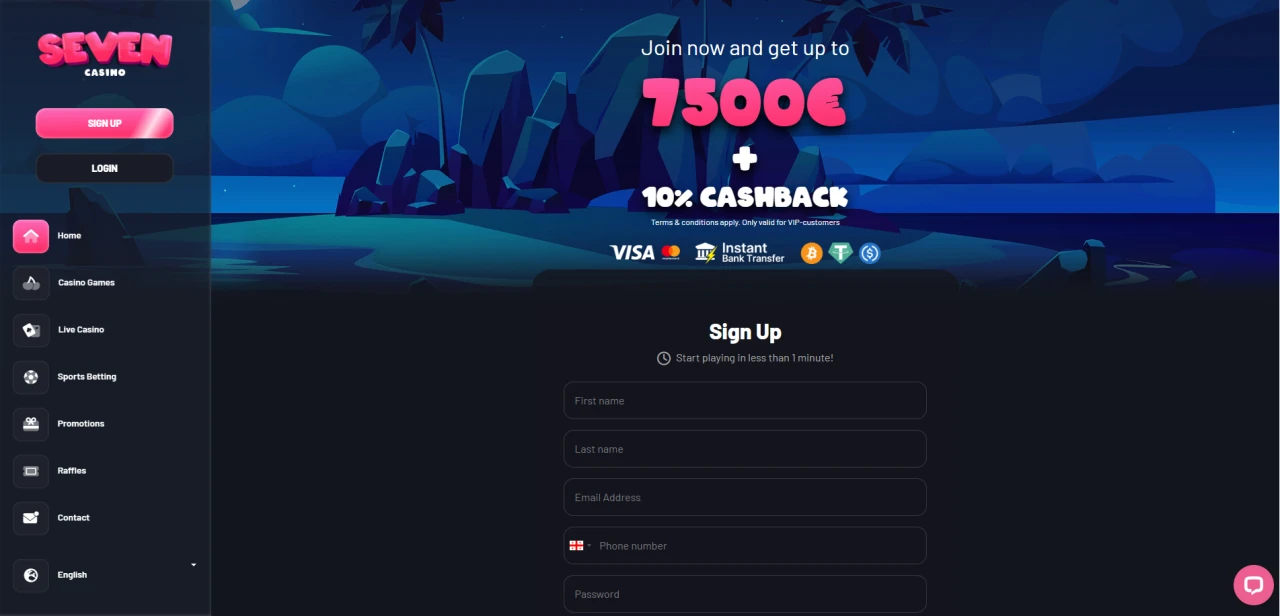
Whether you’re spinning the reels or betting on the weekend’s football matches, Seven Casino keeps the action flowing.
Full Game Suite and Sports Betting Options
Seven Casino provides access to 2,500+ casino games, including video slots, Megaways, jackpots, blackjack, roulette, and a robust live casino section. All games are powered by reliable developers, ensuring top-quality visuals and performance.
Its sportsbook includes markets across football, tennis, basketball, eSports, and more — with live betting and quick odds updates for real-time punters.
Welcome Bonus and Weekly Rewards
New players can claim a 100% welcome bonus up to €500, which is available for use on either casino games or sports bets. Reload bonuses, cashback, and occasional free spin offers are part of the regular promotions schedule, especially for returning users.
Seven Casino focuses on balanced bonuses that don’t overpromise but consistently add value for regular players.
Crypto-Friendly Banking with Speedy Withdrawals
The site supports a wide range of payment options, including Bitcoin, Ethereum, Tether, Skrill, Neteller, and traditional cards. Crypto payments are especially fast, and most withdrawals are processed with minimal delays — often without requiring full ID verification unless larger amounts are involved.
This flexibility makes Seven Casino appealing for privacy-focused players and high rollers alike.
Fully Responsive on Mobile Devices
Seven Casino doesn’t currently offer a mobile app, but the browser version is fully responsive, offering fast access to both casino games and sportsbook features on any modern smartphone or tablet. The layout is slick, functional, and designed with mobile use in mind.
Pros
- 2,500+ casino games and complete sportsbook
- Clean design and mobile-friendly interface
- Crypto and e-wallet support for fast withdrawals
- Balanced, easy-to-claim bonus offers
- No GamStop restrictions for UK players
Cons
- No native app for iOS or Android
- Limited info about VIP or loyalty program
- Promotions could be more varied
Mad Casino – A Bold Non-GamStop Casino with Massive Bonuses
Mad Casino brings an energetic, no-limits experience to UK players looking to escape GamStop. With an eye-catching design and one of the biggest welcome packages in the industry, this platform is built for bonus hunters and slot fans who want variety, speed, and crypto support.
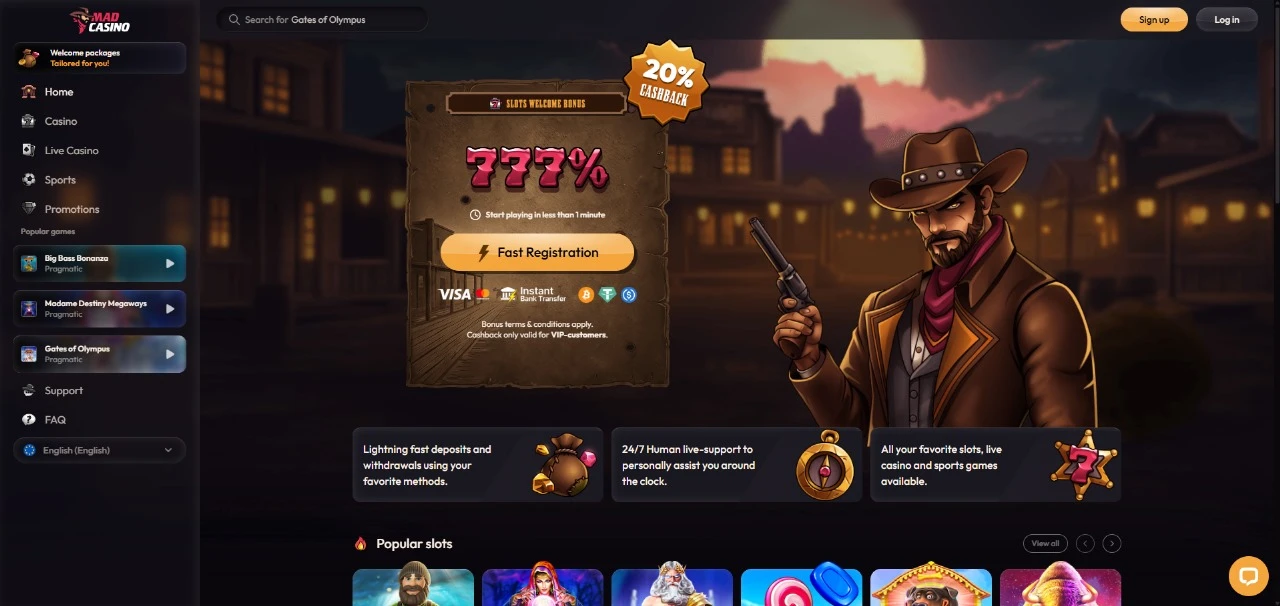
If you're after big promos and a wide game selection without the UKGC restrictions, Mad Casino delivers — with a twist.
Over 7,000 Games and High-Impact Slots
Mad Casino isn’t shy about its game library. Players can dive into over 7,000 titles, including everything from modern video slots and classic reels to high-volatility jackpot games and live casino tables. The site partners with top providers, ensuring both performance and game diversity.
Unlike some of its competitors, Mad Casino focuses entirely on casino content — there’s no sportsbook, which means the entire platform is optimized for spinning, dealing, and winning.
Up to €7,500 in Bonuses Over Five Deposits
Where Mad Casino really makes its mark is with its 777% welcome bonus, spread across your first five deposits. That’s up to €7,500 in total bonus funds, making it one of the most generous offers on the non-GamStop market.
The bonus structure rewards frequent play, and while wagering requirements apply, the raw value on offer is hard to beat. Additional promos like reload bonuses and occasional free spins are also available for returning players.
Crypto-Friendly Payments and Fast Cashouts
Mad Casino supports Bitcoin, Ethereum, Litecoin, and other major cryptocurrencies, alongside e-wallets like Skrill and Neteller, and standard card options. Withdrawals via crypto are typically processed quickly, often within a few hours.
The platform is KYC-light for most users, especially those using digital currencies, making it a smart pick for players who value both speed and privacy.
Mobile-Optimised and Easy to Navigate
There’s no app to download, but Mad Casino’s browser-based site works seamlessly on all mobile devices. Whether you're claiming bonuses, browsing slots, or launching live tables, the experience is fast, intuitive, and built with mobile play in mind.
Pros
- Huge 777% welcome bonus up to €7,500
- 7,000+ games with slots, jackpots, and live casino
- Fast crypto payouts with minimal verification
- Mobile-friendly interface, no app needed
- Clean, casino-only platform with no distractions
Cons
- No sports betting options
- Higher wagering requirements on bonuses
- Reputation is mixed — some reports of withdrawal delays
- No clear VIP or loyalty program
What Is GamStop?
GamStop is the UK’s national self-exclusion scheme, designed to help people control their online gambling habits by blocking access to all UK-licensed gambling websites. Launched by the National Online Self-Exclusion Scheme (NOSES) and regulated by the UK Gambling Commission (UKGC), GamStop has become a central pillar of responsible gambling in the United Kingdom.
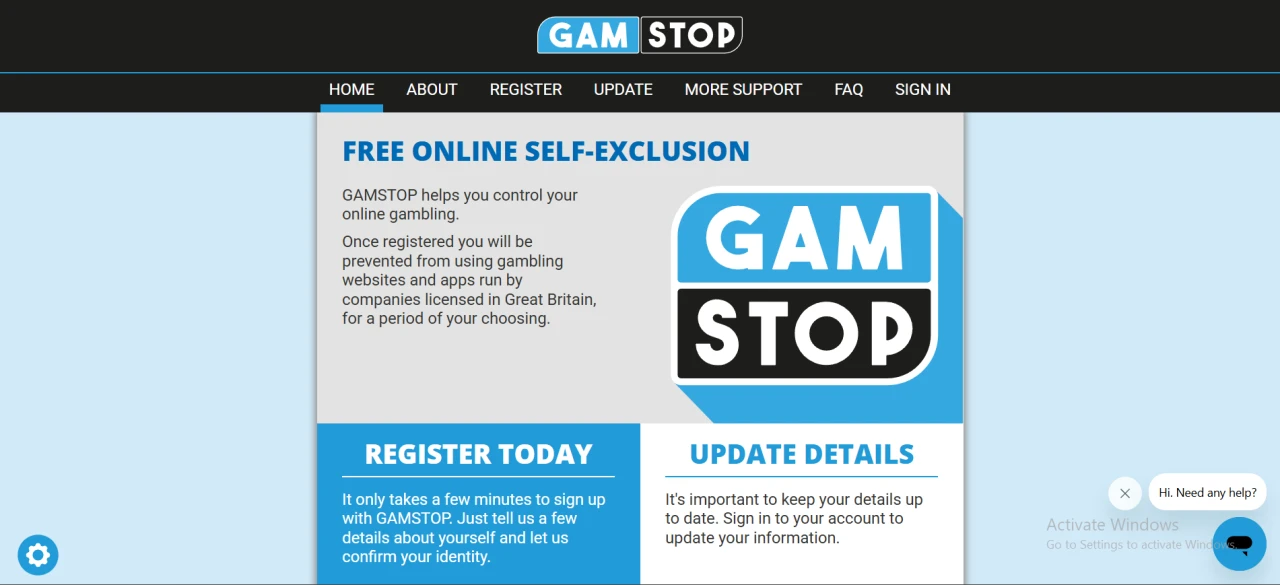
Once you sign up, you're restricted from accessing any casino or betting site licensed in the UK — including top-name brands and even lottery platforms. It doesn’t matter whether you're trying to play slots, bet on football, or claim a free spins offer — if the site holds a UKGC license, your access is denied.
What Are Non GamStop Casinos?
Non GamStop casinos are online gambling platforms that operate outside the UK’s national self-exclusion system, GamStop. Unlike UKGC-licensed casinos that are required by law to enforce GamStop restrictions, these sites are offshore operators — meaning they’re licensed in jurisdictions like Curaçao, Anjouan, or in some cases, the Malta Gaming Authority (MGA).
Because these casinos are not regulated by the UK Gambling Commission, they are under no obligation to participate in GamStop or share player data with the UK’s exclusion registry. As a result, even if you’ve registered with GamStop, you can still sign up and play at these platforms — no blocks, no restrictions.
How Do They Work?
These non GamStop casino sites function much like any other online casino. You register, make a deposit, and start playing real-money games — from online slots and live roulette to sports betting and even crypto-based games. The key difference lies in the licensing and self-exclusion policies.
Instead of following UKGC rules, non GamStop casinos follow the standards set by international gaming authorities. Many of these platforms are still quite reputable, offering secure payment options, verified software providers, and in-house responsible gambling tools. Some even offer their own self-exclusion programs, giving players control without the permanent rigidity of GamStop.
How to Block Non GamStop Casinos Without Using GamStop
GamStop isn’t the only way to control your online gambling — and for many UK players, it’s not the most flexible either. If you're playing at non GamStop casinos but want to take a break, several independent tools let you block gambling sites across all devices — without committing to GamStop’s long-term exclusions.
Here are the top alternatives:
BetBlocker
A free tool that blocks access to gambling sites, including non GamStop casinos. Works on all devices (Windows, Mac, iOS, Android), with exclusion periods from 24 hours to 5 years. Flexible and effective.
Net Nanny
Originally a parental control app, Net Nanny lets you set custom filters to block gambling websites. Ideal for short breaks or scheduled time-outs across your desktop and mobile.
GamBan
A paid service that locks down all gambling content — including offshore casinos — once activated. No going back during the exclusion period. Best for those ready to fully quit.
Which Self-Exclusion Method Should You Choose?
If you’re exploring casinos not on GamStop but want to maintain personal control, here’s a quick breakdown:
|
Tool |
Free? |
Works on Non GamStop Casinos? |
Flexibility |
Platforms Supported |
|
Net Nanny |
❌ |
✅ |
High |
Windows, Mac, Android |
|
BetBlocker |
✅ |
✅ |
Very High |
All major devices |
|
GamBan |
❌ |
✅ |
Low |
All major devices |
Ultimately, self-exclusion without GamStop is possible — and often more adaptable — using tools like BetBlocker or Net Nanny. These services give you full control over your gambling habits, even if you're playing on non GamStop casinos.
UK Casinos Not on GamStop vs. UKGC-Licensed Casinos – Key Differences Explained
When it comes to online gambling in the UK, there are two very different categories of platforms: UKGC-licensed casinos (regulated by the UK Gambling Commission) and casinos not on GamStop, which operate offshore. While both offer access to real-money games, they differ greatly in how they handle registration, player protection, features, and freedom.
Below, we break down the real differences between these two types of casinos — so you can make an informed choice based on what matters most to you.
Registration Process & Player Privacy
|
Feature |
UKGC Casinos |
Non GamStop Casinos |
|
KYC Checks |
Always required (ID, address, source of funds) |
Often minimal or optional |
|
Credit Checks |
Sometimes enforced |
Rare or never |
|
Time to Register |
Can take 24–48 hours |
Usually under 2 minutes |
|
Privacy Level |
Intrusive (documents, affordability checks) |
Higher privacy, less personal info needed |
UKGC casinos are required by law to conduct strict KYC (Know Your Customer) verification. That often means uploading ID, bank statements, and in some cases, proving your income to continue playing — especially for frequent deposits.
In contrast, non GamStop casinos typically streamline the process. Most offshore operators ask only for basic details (name, email, currency) and allow instant access to games. Some platforms even support no ID casinos, especially when using crypto.
Features, Game Options & Freedom to Play
UKGC-regulated platforms are tightly controlled in terms of what features are allowed — particularly when it comes to slots and payment methods.
|
Feature |
UKGC Casinos |
Non GamStop Casinos |
|
Credit Card Deposits |
Banned since 2020 |
Accepted on many sites |
|
Autoplay / Quickspin |
Disabled by law |
Fully functional |
|
Max Bet & Wagering Caps |
Enforced on bonuses |
No fixed limits on most offshore sites |
|
Crypto Payments |
Not accepted |
Widely supported |
These non GamStop slot sites offer a more traditional, high-energy casino experience — similar to what UK players enjoyed before tighter restrictions were introduced by the UKGC. You can spin with autoplay, deposit with credit cards, and even claim bigger bonuses without intrusive affordability checks.
Summary: Which One Is Right for You?
|
Criteria |
Best Choice |
|
Privacy & Fast Registration |
Non GamStop Casinos |
|
Strict Regulation & Oversight |
UKGC Casinos |
|
Payment Flexibility |
Non GamStop Casinos |
|
Responsible Gambling Support |
UKGC Casinos |
|
Bigger Bonuses & Fewer Limits |
Non GamStop Casinos |
|
Legal for UK Players |
Both (offshore sites must be licensed) |
Non GamStop casinos are ideal for UK players who value freedom, bigger bonuses, crypto payments, and fast registration without unnecessary delays. Meanwhile, UKGC casinos are best suited for those who prioritise regulation, accountability, and structured support.
At the end of the day, it’s about choosing a platform that matches your needs, your play style, and your level of responsibility.
Pros of Non GamStop Casinos
1. Access for GamStopped Players
The biggest appeal is simple: you can play even if you’re self-excluded via GamStop. These casinos aren’t linked to the UKGC database, meaning registration is always open.
2. Fast Registration With No ID
Many non GamStop casinos allow you to sign up with just an email and password — no document uploads, no source-of-funds checks. Some platforms even support no ID withdrawals, especially for crypto users.
3. Crypto & Credit Card Payments
Unlike UKGC casinos that ban credit card deposits, non GamStop sites often support both crypto wallets (Bitcoin, Tether, Ethereum) and credit/debit cards, giving players full financial flexibility.
4. Larger Bonuses and Fewer Restrictions
Expect generous welcome packages, regular reloads, and free spin offers without strict wagering caps or deposit limits. These casinos are known for high roller promotions and cashback deals.
5. Autoplay & High-Speed Gameplay
UK regulations have removed autospin and turbo features from slot games — but not on offshore platforms. Here, you can enjoy faster slot spins and uninterrupted betting sessions.
6. Less Intrusive Oversight
No affordability checks. No pop-up warnings after 20 minutes. Casinos not on GamStop allow players to gamble without feeling micromanaged.
Cons of Non GamStop Casinos
1. No GamStop Integration
If you’re trying to avoid gambling, these sites won’t block you automatically. Without GamStop protections, it’s easy to fall back into gambling habits unless you use third-party tools (like BetBlocker or GamBan).
2. Variable Licensing Standards
Most non GamStop sites are licensed in Curaçao or other jurisdictions that don’t match the UKGC’s strict oversight. While many are legit, some can be shady — so choosing reputable sites is critical.
3. Limited Responsible Gambling Tools
Unlike UKGC platforms, non GamStop casinos may not offer deposit limits, self-exclusion options, or reality checks by default. The burden of control falls entirely on the player.
4. No Access to UK Dispute Services
If you have a complaint or withdrawal issue, you can’t contact the UKGC or ADR services. You must rely on the casino’s support team — or hope the license authority intervenes (which isn't guaranteed).
5. Not Covered by UK Financial Protections
Since these platforms are offshore, you’re not protected by UK consumer laws or financial watchdogs. Refunds and disputes may be harder to resolve.
How to Find Trusted Non GamStop Casinos
With hundreds of offshore casinos targeting UK players, finding a trusted non GamStop casino can be tricky. While some platforms offer a safe, high-quality experience, others are poorly managed, unreliable, or outright scams. That’s why it's critical to know what to look for before you sign up.
Below is a checklist of the most important factors that help you separate the legitimate casinos not on GamStop from the ones to avoid.
1. Check the Licensing Authority
Legit non GamStop casinos should hold an active gaming license from a recognised offshore authority. The most common regulators include:
- Curaçao eGaming (most popular)
- Anjouan Gambling Board
- Panama Gaming Commission
- Kahnawake Gaming Commission
- Malta Gaming Authority (rare for non GamStop but reputable)
Make sure the casino displays a valid license number and includes a working link to the regulator’s website. If the licensing info is missing or vague, treat it as a red flag.
2. Look for Verified Payment Methods
A trustworthy non GamStop site will offer secure and reputable deposit options like:
- Cryptocurrency: Bitcoin, Ethereum, Tether (USDT)
- Bank Cards: Visa, Mastercard, AmEx (not banned like on UKGC sites)
- E-wallets: Jeton, MiFinity, or even PayPal alternatives
- Fast withdrawals: under 12 hours is ideal for crypto
Avoid platforms that only offer unusual or untraceable payment methods, or demand up-front ID uploads before deposit — that’s a tactic used by scam operators.
3. Review Game Providers
High-quality game developers only partner with licensed, compliant casinos. Look for familiar names such as:
- Pragmatic Play
- BGaming
- Betsoft
- Evolution Gaming
- NoLimit City
- Playson
If a casino offers random or unknown games with no developer logos, the software may be unverified — and possibly rigged.
4. Read Real Player Reviews
Check independent forums like Trustpilot, Reddit, or AskGamblers to see what real users are saying about the casino. Look out for:
- Delayed or denied withdrawals
- Unresponsive support
- Bonus traps with impossible wagering
- Fake licensing claims
If a casino is listed on multiple blacklists, avoid it entirely — no matter how good the promo looks.
5. Test the Customer Support
Reach out to their live chat or support email with a few basic questions before signing up. Trusted non GamStop casinos will:
- Respond quickly (under 5 minutes for chat)
- Answer clearly without copy-paste responses
- Offer 24/7 assistance in English
If support is slow, rude, or absent — that’s a sign the casino likely won’t help when it matters.
6. Review Bonus Terms Carefully
Bigger doesn’t always mean better. Make sure the bonus:
- Has reasonable wagering (30x–40x is fair)
- Doesn’t limit withdrawals unfairly
- Doesn’t require impossible bets (e.g. 100x turnover)
- Isn’t voided if you win too much
Transparent non GamStop casinos clearly state all bonus conditions, including eligible games and max cashout.
Banking Options at Non GamStop Casinos – Faster, More Flexible Payments
One of the biggest reasons UK players choose casinos not on GamStop is the superior range of banking options. Unlike UKGC-regulated casinos, which have strict limitations on payment methods (including a complete ban on credit cards), non GamStop casinos offer fast, flexible, and privacy-friendly deposits and withdrawals.
Below, we’ll walk you through the most popular banking methods at non GamStop casino sites, and explain why they’re a better fit for many players in 2025.
1. Credit Card Payments (Visa, Mastercard, AmEx)
UKGC rules banned credit card gambling in 2020 — but offshore casinos not on GamStop still allow it.
- Use Visa, Mastercard, or even American Express
- No third-party wallet setup required
- Supports quick deposits with high limits
- Works for UK players at most non-UK casinos
This is a game-changer for many UK players who relied on credit cards for convenience but were blocked by UK restrictions.
2. Cryptocurrency (Bitcoin, Ethereum, USDT)
Crypto casinos not on GamStop are booming, and for good reason:
- Instant deposits and ultra-fast withdrawals
- High levels of privacy — no bank involved
- Accepted coins: Bitcoin (BTC), Ethereum (ETH), Tether (USDT), Litecoin (LTC)
- Often zero fees and 1–2 hour cashout times
This is ideal for players who value both anonymity and speed, especially if they’re using no ID casinos.
3. E-Wallets (Jeton, MiFinity, Perfect Money)
While PayPal isn’t typically accepted at non GamStop casinos, several international e-wallets are:
- Jeton Wallet – Popular in Europe, fast and easy to use
- MiFinity – Great for mobile and low fees
- Perfect Money – A go-to for high-stakes players
- AstroPay – Prepaid and reloadable virtual card
These wallets often allow instant transactions and fewer identity checks compared to UKGC platforms.
4. Bank Transfers & Instant Banking
Non GamStop sites usually offer a wide range of local and international bank transfer methods:
- SEPA & SWIFT transfers
- Instant banking through providers like Volt or Klarna
- Minimal fees, though sometimes slower than crypto
While slower than cards or crypto, bank transfers are still reliable for larger withdrawals.
Faster Withdrawals – No Delays, No Excuses
One of the biggest pain points at UKGC casinos is slow withdrawals — often due to repeated ID checks and manual reviews.
At non GamStop casinos, you’ll find:
- Crypto cashouts processed in 1–2 hours
- Card and wallet withdrawals within 24 hours
- No affordability checks slowing things down
- Auto-approval at many sites after your first win
Some platforms even market themselves as fast withdrawal casinos, specifically targeting UK players tired of waiting.
Customer Support at Non GamStop Casinos – Is It Reliable?
Customer service at non GamStop casinos has improved significantly in recent years. While these sites don’t follow UKGC regulations, many still offer 24/7 support, fast response times, and professional service — especially at the top-tier platforms we recommend.
What You Can Expect
Most trusted casinos not on GamStop provide:
- Live Chat: Available 24/7 on most platforms
- Email Support: For verification, documents, or detailed issues
- Multilingual Agents: English is standard, with support in other major languages
- Self-Help Sections: FAQs for registration, bonuses, and payments
Some even offer Telegram or WhatsApp support, particularly crypto-friendly casinos aiming for fast, mobile-first service.
Online Slots Not on GamStop – Bigger Libraries, Fewer Limits
When it comes to online slots not on GamStop, UK players are in for a treat. Offshore slot sites offer a far more flexible and diverse experience than UKGC-licensed platforms. Thanks to the absence of UK Gambling Commission restrictions, players can enjoy:
- A wider variety of slot titles
- Higher maximum bets
- Autoplay and turbo spin functionality
- Instant bonus buys
While UK casinos often disable features like autoplay and cap wager sizes, non GamStop casinos allow players to experience slots as they were meant to be played.
You’ll still find titles from world-class providers like Pragmatic Play, Hacksaw Gaming, ELK Studios, NoLimit City, and BGaming — along with network jackpots such as Mega Moolah and Drops & Wins. Whether you love Cluster Pays, Megaways, or high-RTP classic reels, you’ll find them in abundance at offshore casinos.
Table Games & Live Casino Games Not on GamStop
Most non GamStop casino sites are hybrid platforms — offering more than just slots. Their live dealer and table game sections are loaded with:
- Blackjack (standard, multi-hand, VIP)
- Roulette (European, American, Auto)
- Baccarat (classic, speed, commission-free)
- Game-show-style titles like Crazy Time, Monopoly Live, and Deal or No Deal
Powered by top-tier studios like Evolution Gaming and Ezugi, these live games are streamed in real-time with professional dealers — and often with higher table limits than UK sites.
Crash Games at Non GamStop Casinos
Crash games are one of the fastest-growing verticals in non-GamStop gambling. These simple yet addictive games allow players to:
- Place a bet
- Watch the multiplier rise
- Cash out before the game “crashes”
Popular crash games include Aviator, Spaceman, and Crash Duel — all of which are available at most modern non GamStop platforms. With fast rounds, flexible bets, and huge risk/reward appeal, crash games are ideal for mobile players and crypto bettors.
Poker Games Not on GamStop
Non GamStop poker sites cater to serious players with a competitive edge. They support a full suite of poker formats, including:
- Texas Hold’em
- Omaha & Omaha Hi-Lo
- 5-Card Draw & Caribbean Stud
- Sit & Go tournaments
- MTTs with large prize pools
Unlike UKGC poker rooms, these offshore sites don’t restrict tournament structures or betting ranges. You’ll also find video poker titles like Jacks or Better, Deuces Wild, and All Aces with flexible coin values — perfect for high rollers or casual grinders alike.
Unique Games at Non GamStop Casinos
Offshore casinos offer a playground of alternative casino games that aren’t always available in the UK. Some of the standouts include:
- Plinko – A pegboard-based multiplier game with physics-based randomness
- Slingo – A slot-bingo hybrid that combines luck and strategy
- Live Game Shows – Real-money interactive experiences streamed from live studios
- Instant Win & Scratch Games – Quick, low-stake chances to win
These types of games give non GamStop casinos an edge when it comes to variety and entertainment.
Sports Betting Without GamStop – Bigger Bets, Global Markets
Non GamStop bookmakers are especially popular with UK punters who want higher stakes and fewer limitations. These platforms typically offer:
- Higher betting limits than UK sites
- Broader sports coverage — including niche sports, esports, and global leagues
- Fast payouts and crypto-friendly betting
- Frequent odds boosts, cashback, and reload bonuses
Because they're not bound by the same compliance rules as UK sportsbooks, non GamStop betting sites can offer unique markets — from political bets and virtual sports to MMA, kabaddi, and live-streamed cricket.
Many hybrid gambling platforms combine casinos and sportsbooks into one — meaning players can seamlessly switch between slots, blackjack, and Premier League betting.
Just note: most platforms allow you to claim only one welcome bonus — either for the casino or the sportsbook — not both.
Bonuses & Promotions at the Best Casinos Not on GamStop (2025)
One of the biggest advantages of playing at casinos not on GamStop is the sheer generosity and variety of promotions they offer. Unlike UKGC-regulated casinos — which are limited by strict advertising and bonus rules — non GamStop casino sites operate under more flexible licensing conditions. That means bigger bonuses, fewer restrictions, and more frequent rewards for UK players.
Whether you’re chasing a huge welcome package, free spins on new slot releases, or VIP cashback perks, the best non GamStop casinos UK have something to offer players of all bankrolls and play styles.
Below is a breakdown of the most popular bonus types available in 2025, along with expert insights to help you use them wisely.
Welcome Bonuses – Bigger, Bolder, and Often with Free Spins
Almost all non GamStop casinos greet new players with a matched deposit bonus. These offers typically match your first deposit by 100% to 300%, sometimes stretching across your first three deposits.
Example: Deposit £200 and receive another £200 in bonus funds — or more.
Many sites also sweeten the deal with free spins on popular slots like Sweet Bonanza, Gates of Olympus, or Book of Dead. Unlike UK casinos, offshore sites often impose fewer wagering limits, letting you extract more value from your first play session.
Why It’s Better: Higher match percentages, fewer bonus restrictions, and larger cash caps.
Reload Bonuses – Ongoing Rewards for Regular Players
Reload bonuses are not just for new users. At non GamStop casinos, you’ll find:
- Daily reloads (e.g., 50% up to £100)
- Weekend top-up bonuses
- Weekly slot promotions with free spins
These incentives keep existing players engaged without requiring large deposits. They're perfect for casual UK players looking for consistent perks.
Cashback Offers – Minimise Risk, Maximise Playtime
Many non GamStop slot sites offer cashback promotions to soften your losses and reward continued play. Here's how they usually work:
- A percentage (typically 10% to 25%) of your net losses is returned to your account
- Cashback is credited as real money or low-wager bonus funds
- Usually calculated daily or weekly
Example: Lose £200 in a week → get £40 back with 20% cashback.
Why It’s Better: Most UKGC casinos offer capped or restricted cashback — offshore sites provide more generous, often wager-free returns.
Free Spins – Try Slots Without Risk
Free spins are everywhere at non GamStop casinos. You’ll find them attached to welcome offers, reload deals, or as standalone promotions during slot tournaments.
Key features:
- Typically awarded on featured games (e.g., Sugar Rush, Big Bass Bonanza)
- Winnings usually come with wagering requirements (10x–30x is common)
- Some high-end sites offer no-wager spins — withdraw what you win
Pro Tip: Look for “free spins every day” promos. These give you 10–20 spins for logging in or depositing daily.
Loyalty Programmes – Get Rewarded for Consistency
The best non GamStop casino sites have tiered loyalty programmes that reward you for long-term play. Benefits increase as you climb levels, including:
- Weekly cashback boosts
- Exclusive tournaments
- Birthday gifts or free bets
- Dedicated account managers
Progress is usually based on wagering activity or number of deposits, with rewards tailored to your play style.
VIP Clubs – Priority Perks for High Rollers
VIP schemes go even further, offering elite treatment to the casino’s most active and loyal players.
Expect:
- Faster withdrawals
- Higher deposit and bet limits
- Custom bonuses & free spins packages
- Personal VIP host and exclusive events
Some non GamStop VIP casinos even reduce wagering requirements or offer wager-free cashback for top-tier members.
Referral Bonuses – Bring a Friend, Get Rewarded
While rare in the UK, non GamStop casinos often run robust referral schemes. These range from simple refer-a-friend bonuses to multi-tiered affiliate-style earnings.
You could receive:
- Free spins for each verified signup
- Bonus cash based on your friend’s deposits or wagers
- Rank upgrades in loyalty or VIP programmes
Pro Tip: Always check referral T&Cs — some platforms pay recurring commission-like bonuses over time.
Terms & Conditions at Non GamStop Casinos – What Smart UK Players Must Know
While flashy banners offering “500% bonuses” and “100 free spins” may grab your attention, seasoned players know that the true value of any bonus lies in the fine print. At casinos not on GamStop, promotions are often larger than those at UKGC sites — but they can come with stricter or more creative terms.
Understanding how bonus terms and conditions work at non GamStop casinos is essential if you want to avoid traps, cash out winnings, and maximize value from every offer.
Here’s a deeper breakdown of the rules, restrictions, and strategies that every UK player should understand before claiming bonuses at offshore casinos.
1. Wagering Requirements – Know Your True Playthrough
A common pitfall is underestimating wagering requirements. These determine how much you must bet before bonus funds (or free spin winnings) become withdrawable.
Example: A £20 bonus with 40x wagering = £800 in total bets before cashout is allowed.
Pro Tip: Look for casinos with 30x or lower wagering. Anything above 50x is considered high-risk for players.
Watch out for:
- Separate wagering on deposit and bonus
- Game contribution rules (slots = 100%, roulette = 10%, etc.)
- Wagering applies to both bonus + deposit (less favourable)
2. Time Limits – Don’t Get Caught Off Guard
All bonus offers come with a time window to complete wagering — and at non GamStop slot sites, these limits can vary greatly.
- Standard: 30 days
- Aggressive offers: 7 days or 24 hours (often hidden in fine print)
If you don’t meet the requirement in time, the bonus and any winnings tied to it are forfeited.
Always check the “Bonus Expiry” or “Validity Period” before claiming.
3. Maximum Bet Limits – Small Bets Only
To prevent players from hitting high wins too quickly, many non GamStop casinos cap your bet size while wagering.
- Common cap: £5 per spin or round
- Some restrict bonus funds to £2.50–£3 max
- Bets exceeding this often void your bonus — even retroactively
If you’re a high-roller, use real money instead of bonus balance to avoid limits.
4. Maximum Win Limits – Don’t Lose What You Win
Here’s one of the most misunderstood bonus rules: Maximum Win Limits. These rules cap the amount you can actually cash out from bonus-related wins.
Example: Win £800 from bonus spins with a £250 cap = £550 forfeited.
This can feel especially painful if you hit a jackpot — only to realize it doesn’t count.
Best Practice: Only claim bonuses with clearly stated or no max win caps.
5. Game Restrictions & Contribution Rates
At non GamStop casinos, some games count less — or not at all — toward wagering. It’s vital to understand:
- Slots = usually 100% contribution
- Live dealer games = 5–10%
- Table games (blackjack, roulette) = 0–20%
- Some bonuses are game-specific (e.g., “100 FS on Big Bass Splash only”)
Read the bonus game list carefully. Some casinos let you filter eligible games automatically.
6. Bonus Abuse Clauses – Play Fair or Risk a Ban
Offshore casinos may seem more relaxed, but bonus abuse is taken seriously. This includes:
- Creating multiple accounts to claim welcome offers again
- Betting strategies like “low-risk wagering”
- Simultaneous cashout + bonus play
- “Hedging” strategies across games
Most sites clearly state that abuse will result in account bans, confiscation of winnings, or both.
If you’re a bonus hunter, stick to clear, transparent offers and avoid tricks — casinos monitor activity.
Final Verdict – Are Non GamStop Casinos Worth It?
Non GamStop casinos have reshaped the online gambling experience for UK players who want freedom, bigger bonuses, and fewer restrictions. Compared to UKGC-licensed platforms, these offshore casinos deliver:
- Larger game libraries, including slots with autoplay, bonus buys, and high RTP titles.
- Flexible payments, from credit cards to instant crypto withdrawals.
- Generous bonuses, cashback, and loyalty rewards without tight caps or wagering traps.
- Access for GamStopped players, making them a lifeline for those blocked by UK schemes.
However, this freedom comes with responsibilities. Since these casinos aren’t regulated by the UKGC, it’s up to players to choose safe, licensed platforms and practice responsible gambling. Selecting sites with verified licenses (e.g., Curaçao or MGA), reliable payment methods, and clear bonus terms is crucial to avoid potential pitfalls.
Our Expert Recommendation
If you’re looking for the best non GamStop casinos in 2025, our top picks — 1Red, MyStake, GoldenBet, PitBet, and DonBet — stand out for their trustworthiness, fast payouts, and player-friendly promotions. Whether you’re into slots, sports betting, or live casino games, these platforms offer a seamless, unrestricted experience that UKGC casinos simply can’t match.

About Alexander Cromwell – Non GamStop Casino Expert
Hi, I’m Alexander Cromwell — a UK-based casino analyst with over 12 years of experience in the online gambling space.
I specialise in reviewing casinos not on GamStop, helping British players find secure, high-quality gaming options outside the UKGC framework.
Over the past decade, I’ve reviewed hundreds of offshore casinos — analysing everything from licensing and game providers to withdrawal policies and bonus terms. I joined old-bus-photos.co.uk to bring fact-checked, unbiased insights to UK players exploring non GamStop casino sites.
I personally test each platform I recommend, focusing on real-money slots, live dealer games, crypto compatibility, and user experience. Whether you’re a casual spinner or a high-roller, my mission is to help you play smarter and safer beyond UK restrictions.
If you’re seeking more freedom, faster payouts, and bigger bonuses, I’m here to help you navigate the non GamStop casino world with confidence.
Bottom line:
For UK players seeking more control, higher betting flexibility, and bigger rewards, the best casinos not on GamStop are worth exploring — provided you stick to our vetted recommendations and always gamble responsibly.
FAQ – Best Casinos Not on GamStop (UK, 2025)
What are non GamStop casinos?
Non GamStop casinos are online gambling sites that are not registered with the UK’s GamStop self-exclusion program. These platforms operate offshore, allowing UK players — including those who are GamStopped — to register, deposit, and play freely. They're especially popular among users looking for more flexibility than UKGC casinos provide.
Can I play slots not on GamStop in the UK?
Yes! There are dozens of trusted slot sites not on GamStop UK where you can enjoy games from top providers like Pragmatic Play and Hacksaw Gaming. These sites often include bonus buy features, autoplay, and higher max bets than UK-licensed casinos.
What is the best non GamStop casino in 2025?
Our top-rated picks for the best non GamStop casino include 1Red, MyStake, GoldenBet, and PitBet. These platforms offer generous bonuses, crypto payments, and support for casino games not on GamStop, including slots, roulette, blackjack, and live tables.
How do I bypass GamStop and access non GamStop casinos?
To bypass GamStop, UK players can register at casinos that don’t use GamStop. These sites operate with offshore licenses (like Curaçao or Anjouan), so they don’t share user data with UKGC systems. You can sign up using just your email and start playing immediately — no ID or KYC usually required.
Are non GamStop casinos better than UKGC sites?
Non GamStop casinos UK offer more payment options (including credit cards and crypto), bigger bonuses, fewer restrictions, and faster withdrawals. However, they lack UKGC protection, so it’s essential to choose trusted non-GamStop casinos with fair terms and proper licensing.
Can I claim bonuses at casinos not on GamStop?
Absolutely. In fact, bonuses at non GamStop casinos are often more generous than those in the UK. You’ll find welcome offers, free spins, cashback, and VIP perks with fewer restrictions. Just make sure to review the wagering requirements and max win limits in the terms and conditions.
Do non GamStop casinos accept credit cards and crypto?
Yes — this is one of their biggest advantages. While UKGC casinos ban credit card gambling, casinos not on GamStop accept Visa, Mastercard, and even Bitcoin, Ethereum, and Tether. These options provide faster, safer, and more flexible deposits for UK players.
What types of casino games are available at non GamStop sites?
You can enjoy all major game types, including:
- Slots no GamStop
- Table games (blackjack, roulette, baccarat)
- Live casino games
- Crash games like Aviator and Spaceman
- Poker sites not on GamStop
- Sports betting without GamStop
Many sites are hybrid platforms offering both casino and sportsbook in one account.
Are non GamStop casinos legal for UK players?
Yes, it's legal for UK players to access non GamStop casinos, as long as the site is licensed and allows international players. These casinos operate outside UKGC jurisdiction but remain legitimate and regulated offshore. Always choose verified, reviewed operators for safe gameplay.
What are the best alternatives to GamStop?
If you're looking to block yourself from gambling without GamStop, you can use tools like BetBlocker, GamBan, or Net Nanny. These work across all devices — including access to nongamstop casinos — giving you more flexible self-exclusion than the UKGC scheme.
If in doubt, stop playing and reach out to services like GamCare or GambleAware.
